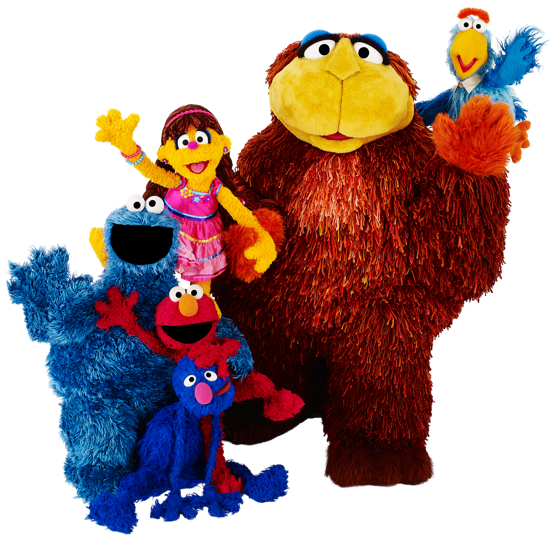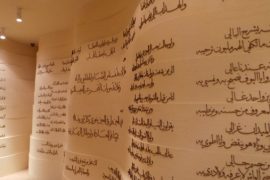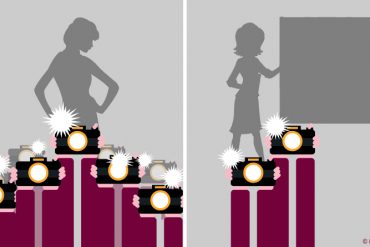Article in brief: As the Arabic production of Sesame Street is returning after more than 2 decades of hiatus, the author explores the background of the show in it’s original and Arabic production forms.

The question isn’t whether you know it’s back or not, the question is: will it have the same impact now as it first did back then? It’s safe to say that the majority of those who are extremely excited about the comeback are either the generation born in the late 70s and 80s, or the generation who are parents to them. We’re talking about the official comeback of Iftah Ya Simsim, the Arabic production of Sesame Street. Before we talk about the comeback, let’s shed some light on the history and background of both the original and the Arabic productions.
Sesame Street, first aired in 1969, it’s an educational-entertainment show that targets preschoolers. Joan Cooney founded the show with a huge part of its success contributed by Jim Henson, who brought in the complete set of Muppets that Sesame Street is famous for. The main purpose of the show is to teach kids: numbers, letters, words, and grow in them the love of learning, developing, and their sense of curiosity all in a fun and entertaining approach. Sesame Street across the years has been used as a vehicle to instill certain values in the kids in fascinating ways, one of the most obvious examples being racial acceptance and equality among the new generation. They included “ethnic” kids in the show at a time civil rights were newly given to the African Americans in the US. The founder, Joan Cooney, told the Newsweek in an interview few years ago, that it is possible the ethnicity inclusion introduced in Sesame Street may have planted the seeds to now have an African American US president.
The show, which was produced by Children’s Television Workshop, later renamed Sesame Workshop, has been the first of its kind in the genre of educational-entertainment shows for preschoolers. It received tremendous success immediately, leading to the selling of the Sesame Street franchise across the world either in providing the content for translation, or allowing the countries purchasing the franchise to produce their own content under the supervision of Sesame Workshop.
In 1976, Gulf Cooperation Council Joint Program Production Institution was founded by the Gulf Cooperation Council (GCC) as a joint funding program to create shows that preserves the heritage and cultural identity of the GCC. The institution then purchased the rights to produce the Arabic version of Sesame Street and named it Iftah Ya Simsim, which translates to “Open Sesame”. The production was massive because it introduced a few new characters replacing original characters, such as introducing Naaman instead of the Big Bird, and it developed a whole new content that revolved around the GCC culture, heritage, and religion to fit with the children growing up in GCC and in the Arab region. Iftah Ya Simsim was first aired in 1979, and the first season was repeated across for a couple of years before the second season started in 1982. The show however discontinued after the production of the 3rd season, as the 2nd Gulf War started and the country that hosted the production, Kuwait, was invaded by Iraq. By the time the war ended, some of the Muppets were lost, and they were able to only retrieve about 40 episodes out of the 120 episodes produced, which were aired after the war ended[i]. But that was the end of it. The dynamics changed in the GCC after the war, and for one reason or another, the institution possibly didn’t receive the same amount of funding it received from all the GCC as it first did, and so the show never continued.
After a hiatus of 25 years, the idea of bringing back Iftah Ya Simsim was brought back to The Arab Bureau of Education for the Gulf States by Sesame Workshop in 2010. It was welcomed and an Educational Advisory Committee was formed by 9 entities to overlook it, such as the Bureau aforementioned, Abu Dhabi Education Council, Mubadala, TwoFour54, and a few more. Bidaya Media was launched as a media company by Mubadala to take on this massive production and other such educational-entertainment future projects. Building on its predecessor, the Arabic version, the show is built to preserve the region’s heritage, culture, religion and national identity against all the intrusions from around the world. It’s aimed to build an informed curious global citizen. But the most important addition to the new production of the show, according the team working on it, is that it understands that today’s kids are different from the 80’s kids when Iftah Ya Simsim first started. Today’s kids are digital and are more affected by the western media, so to engage them in the show it will embrace those new aspects and push different attractive content across the different digital platforms that kids are exposed to. Moreover, according to Bidaya Media, the main two values that are emphasized in the first season will be Arabic literacy and health education.
The question that remains is: will the new show manage to engage today’s digital and “short attention-span” kids as it did engage us back in the 80’s? Will the new generation of preschoolers learn the values embedded in the show so carefully? Only time will tell, and of course the continuous research by Bidaya Media will keep us informed. I know I will be marking the time of the show in my calendar to watch it, and relive a part of my childhood that I dearly miss.
Iftah Ya Simsim will be aired on a number of national channels across the Arab region, and will be repeated across the week. The show will be aired on Al Emarat channel on Fridays at 10:30AM starting this Friday,
[i] http://www.alriyadh.com/245946




These series were really very exciting that I have been watching from the very childhood days. They are still the most exciting one for me that I have been watching from the very start.